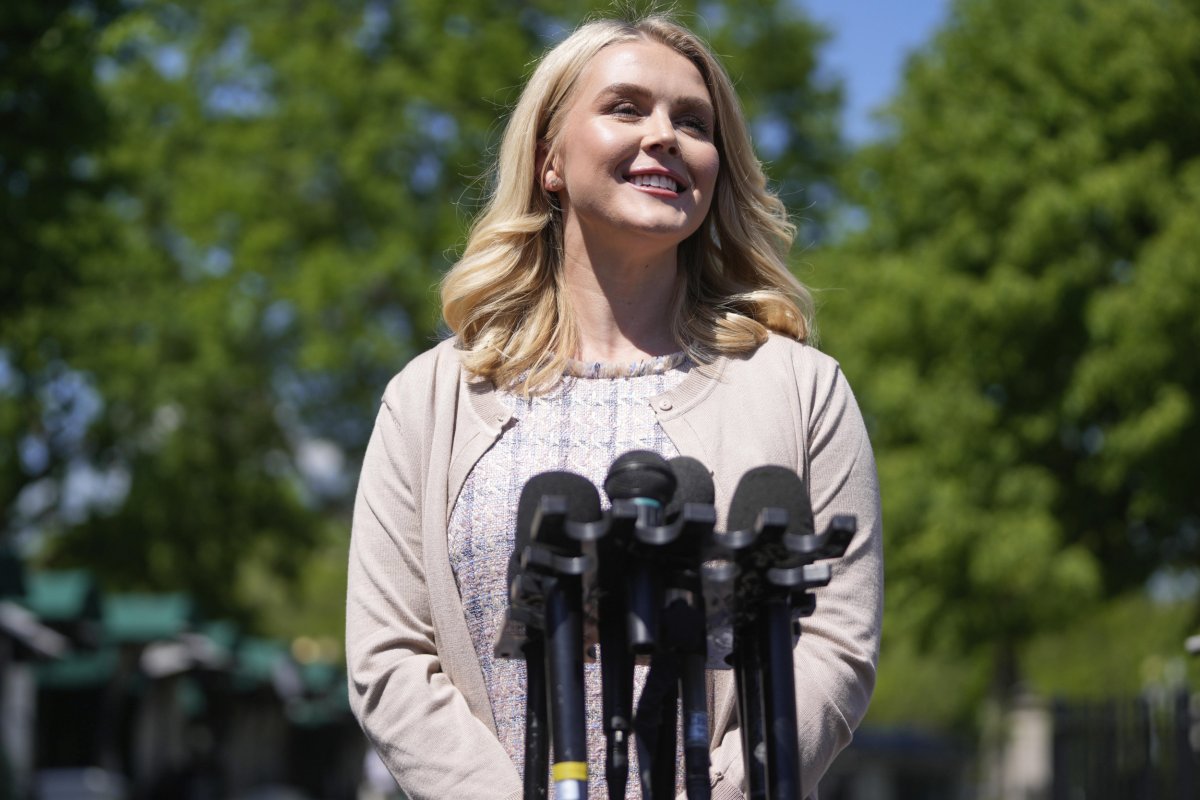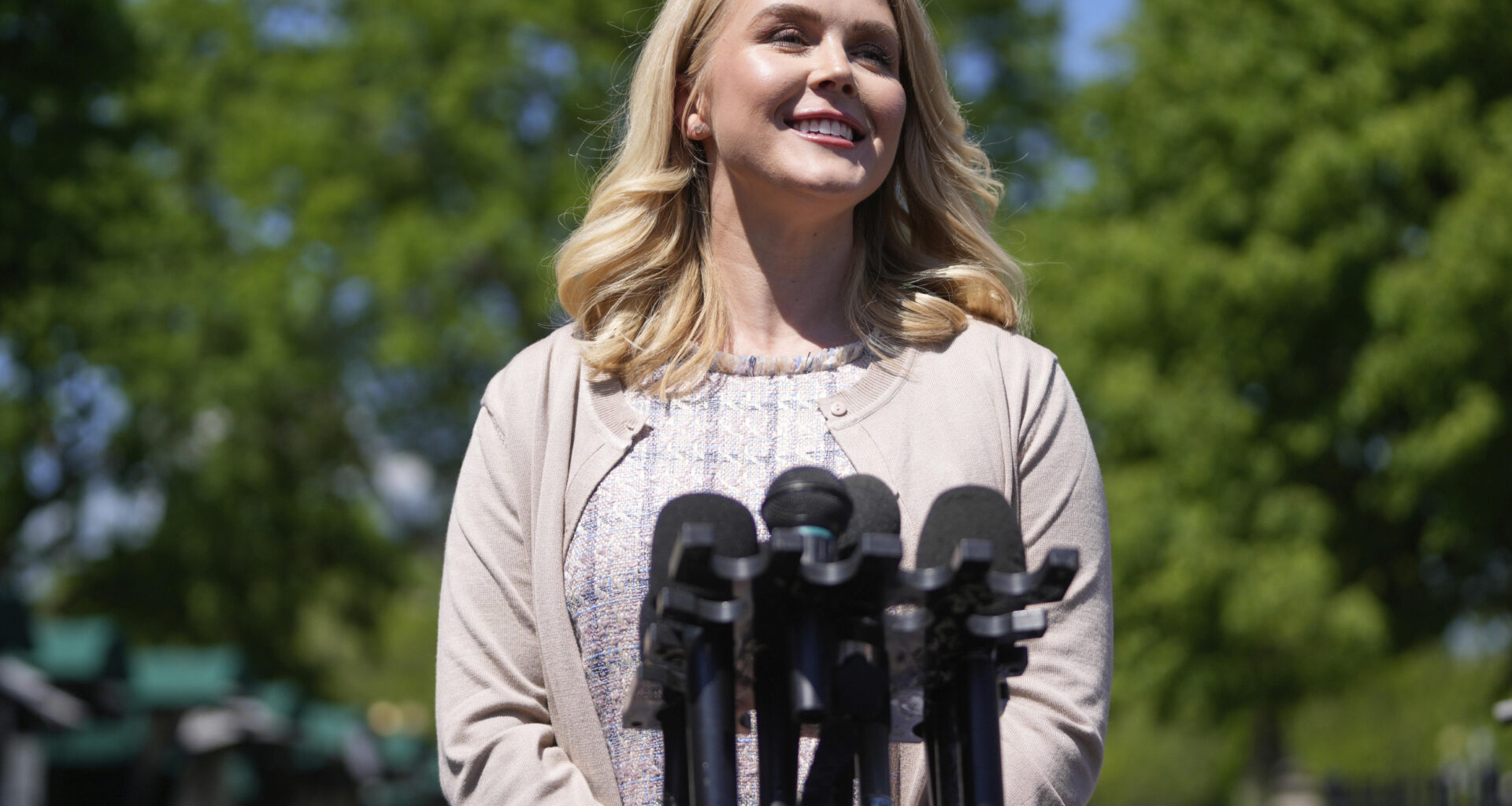The White House has defended its decision to take direct control of the presidential press pool.
“It’s not about ideology,” press secretary Karoline Leavitt told Axios on Friday. “It’s about increasing the wide array of outlets that have access.”
Newsweek has reached out to the Associated Press and the White House via email for further comment.
The Context
For the past century, the White House Correspondents’ Association (WHCA), a group of independently selected news organizations including the Associated Press (AP), have accompanied the president and held him accountable on behalf of the American public.
The Trump administration broke with tradition in February when it announced it was banning AP from the White House press pool after the news agency refused to refer to the Gulf of Mexico, as it is still known internationally, by President Trump’s new moniker, the Gulf of America.
The AP successfully sued the White House for access to presidential events and Oval Office press conferences. But the White House then took direct control of the daily rotation of reporters in the pool, axing the permanent spot for wire services such as AP, and adding two print media reporters and a new media position instead.

White House press secretary Karoline Leavitt speaks with reporters outside the White House, Wednesday, April 23, 2025, in Washington. (AP Photo/Mark Schiefelbein)
White House press secretary Karoline Leavitt speaks with reporters outside the White House, Wednesday, April 23, 2025, in Washington. (AP Photo/Mark Schiefelbein)
Mark Schiefelbein/AP
What to Know
On Friday, Leavitt told Axios that the changes to the press rotation and its relationship with WHCA, was not about “restrictions.”
“We view them as opening access to more outlets, more voices, more news, journalists and outlets,” Leavitt said. “Why should a single outlet have the privilege of being in that 13-person press pool every single day?”
The Trump administration has touted its new media strategy, which has seen a number of Trump-friendly podcasters and influencers invited to White House press briefings. It has also added nonpartisan digital outlets like Axios.
The press secretary said that she disagreed with the notion that the WHCA should choose who covers the president, adding that there should be “equal access for all outlets, and that’s exactly what we’re doing.”
Leavitt has previously described the media’s access to the president and White House as a “privilege,” not a right.
However, the decision has seen significant pushback from the WHCA and the three independent newswires—AP, Reuters and Bloomberg—who no longer have a regular slot in the presidential press pool.
AP’s VP of Communications, Lauren Easton, said the outlet was disappointed that rather than restore the AP’s access, the White House had continued “to disregard the fundamental American freedom to speak without government control or retaliation.”
The WHCA said that the administration’s decision to take control over who covers the president means it can not guarantee there would be no viewpoint discrimination.
Last week, a federal judge declined to further enforce his order instructing the White House to restore AP’s access after agreeing with the government that its new policy does not necessarily discriminate against the news service. However, he warned that there would be serious consequences if AP continued to receive “second-class treatment.”
What People Are Saying
Leavitt told Axios during an event in D.C. on Friday, “The president ran a non-traditional media campaign, which propelled him back to the highest office in the land, and we felt it was our responsibility to continue that in our coverage at the White House.”
Bloomberg Editor-in-Chief John Micklethwait told AP, “For decades, the daily presence of the wire services in the press pool has ensured that investors and voters across the United States and around the world can rely on accurate real-time reporting on what the president says and does. We deeply regret the decision to remove that permanent level of scrutiny and accountability.”
White House Correspondents’ Association president Eugene Daniels said in a statement earlier this month, “The government should not be able to control the independent media that covers it.”
What’s Next
The White House is also planning to shake up the press briefing room seating chart in the coming weeks—something typically controlled by the WHCA, according to reports.
